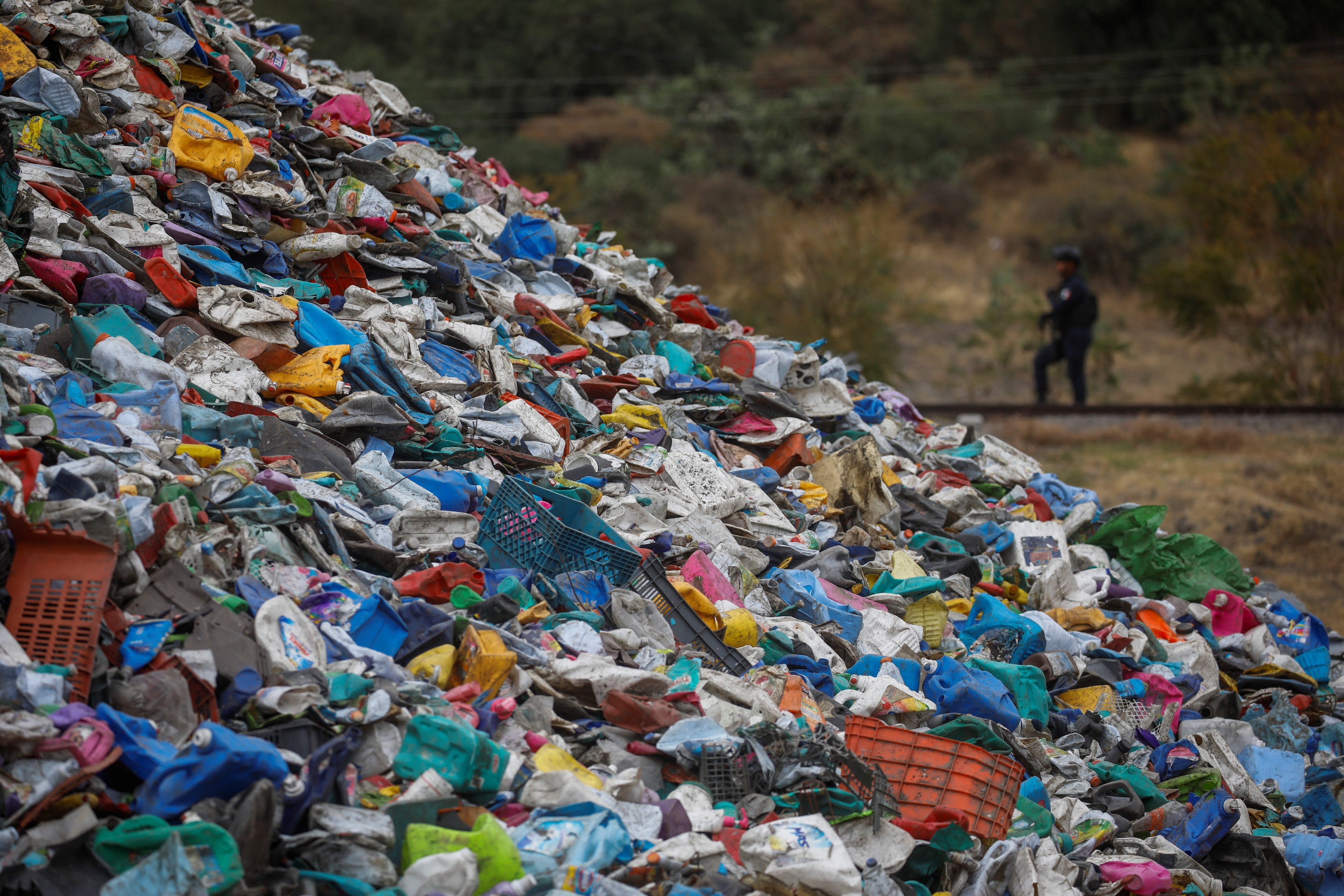The UK is banning all new petrol and diesel cars by 2040

Environment Secretary Michael Gove has set out action to improve the UK's air quality.
Image: REUTERS/Peter Nicholls
Stay up to date:
United Kingdom
New petrol and diesel cars will be banned in the UK from 2040 as part of a government effort to reduce pollution.
Environment Secretary Michael Gove confirmed on Wednesday morning that vehicles powered solely by fossil fuels will no longer be allowed to be sold after the deadline.
The measure was one of several planned by ministers in response to a legal ruling by the High Court, which demanded they take further action to improve the country's air quality.
In an interview on the BBC's "Today" programme, Gove confirmed the commitment, which was briefed overnight to newspapers.
He said: "The Conservatives had a manifesto promise to ensure that by 2050 there would be no diesel or petrol vehicles on our road. Today we're confirming that should mean no new diesel or petrol vehicles by 2040."
He said the ruling will put Britain in "a position of global leadership", alongside the government of France, which announced a similar policy — also with a 2040 deadline — at the beginning of the month.
More details on the policy — and other measures, including partial bans and charges on driving existing diesel vehicles — are expected to be included in a plan published by the Department for Rural Affairs and the Environment on Wednesday.
The government was forced into making its plans public after it lost a legal battle with environmental campaigners in the High Court in November 2016.
The court demanded that ministers publish full plans by July 31. Draft measures published in May will be superseded by the final plan on Wednesday.
Don't miss any update on this topic
Create a free account and access your personalized content collection with our latest publications and analyses.
License and Republishing
World Economic Forum articles may be republished in accordance with the Creative Commons Attribution-NonCommercial-NoDerivatives 4.0 International Public License, and in accordance with our Terms of Use.
The views expressed in this article are those of the author alone and not the World Economic Forum.
Related topics:
Forum Stories newsletter
Bringing you weekly curated insights and analysis on the global issues that matter.
More on Nature and BiodiversitySee all
Tom Crowfoot
August 12, 2025
Pedro Gomez and Clemence Schmid
August 6, 2025
Tom Crowfoot
August 5, 2025


